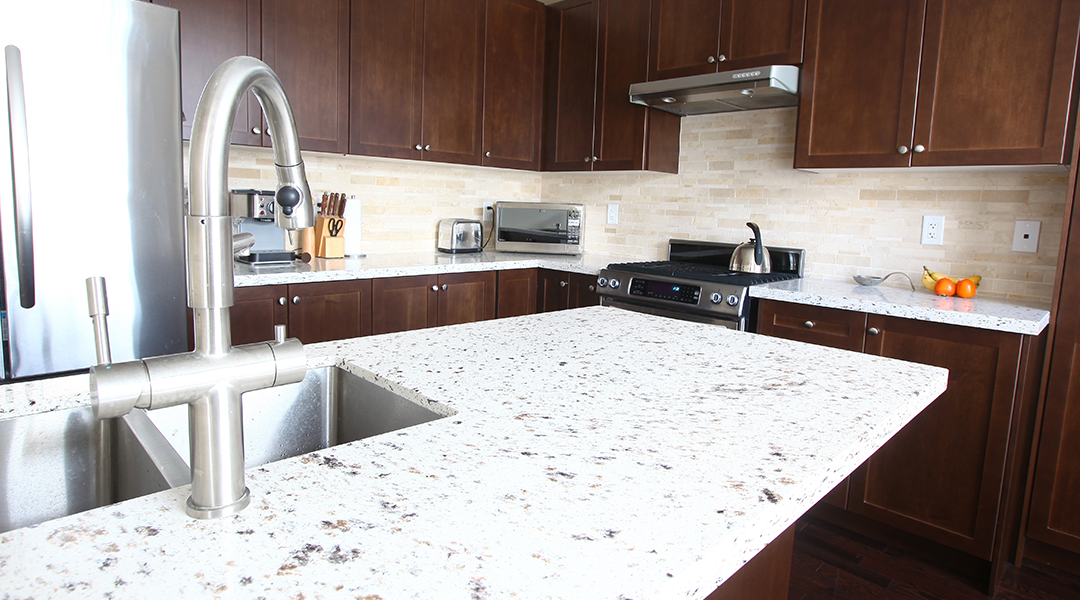With names so similar, quartz and quartzite are often confused with one another. However, before picking one of these materials, it is important to understand the key differences between the two. From composition and appearance to maintenance and durability, when it comes to quartz vs quartzite countertops, what is the difference?
>> Download Our Natural Stone Care Guide — Click Here <<
Natural vs Man-made
The main difference between quartzite and quartz is that quartzite is a natural stone whereas quartz is man-made. Quartzite is derived from sandstone but is distinguished from sandstone by its fracture. Quartzite is a hard stone and breaks across constituent grains whereas sandstone breaks along its grain boundaries. Under intense heat and pressure, grains compact and fuse together to form quartzite. Quartz, on the other hand, is an engineered stone and its composition can be changed to resemble materials such as granite and marble.
Appearance
As a natural stone, quartzite is found in various shades of white and gray. The stone may have pink, red, yellow, blue, or green hues because of the iron oxide and other minerals in the stone. Since quartz is engineered, there is a wider range of color pigments and patterns to consider. For larger jobs, quartz also allows for more consistent patterns and colors compared to the uniqueness of natural stone.
Hardness and Durability
When it comes to choosing quartz vs quartzite countertops, both stones are hard and fairly resistant to cracking when cared for properly. As a natural stone, quartzite is among the strongest natural stones available for use as countertops. Quartzite is also heat resistant and will not damage easily when hot pans or pots are placed on its surface.
Since quartz is manufactured, one of the most common synthetic materials used in its composition is plastic-based resin. While this makes quartz more resistant to cracking, it also makes it less resistant to heat. When handling hot pans or pots be sure to protect the countertop surface with hot pads.
Maintenance
Both quartz and quartzite are relatively easy to maintain. Since quartz does not require sealing, it takes the cake in maintenance. We recommend cleaning your quartz countertops with non-abrasive cleaning solutions to ensure it remains scratch-free. To maintain quartzite, you will need to seal it to prevent staining and discoloration.
Quartz vs Quartzite Countertops: Which is Right for You?
When it comes to choosing between quartz and quartzite countertops, there is no true winner. Both stones are very durable, beautiful, and have minimal upkeep. If you’re still not sure which to choose, stop by Z Stone Creations for your free consultation. We are open Monday -Friday from 8 am to 6 pm and Saturdays by appointment. Contact us today to schedule.


